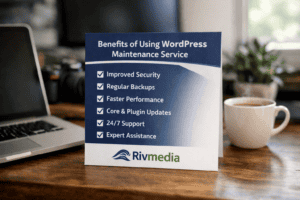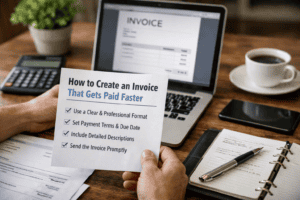Table of Contents

You need to be conscious of business rates if you have business premises and even if you operate from home. They can be a heavy expense for a small company, so when planning out your business plan, it is important not to forget them. Fortunately, for business rates, there are different exemptions and reliefs available, so you need to know about these.
What Are Business Rates?
Business rates are a tax imposed on business property (sometimes referred to as commercial rates). The revenue raised is channelled by local authorities into services such as waste management services, ambulance, and police in the same way as council tax.
Business rates are an annual bill charged in ten equal instalments, much like council tax. This ensures that you’ll have to make larger instalments to cover the unpaid balance if you miss a bill.
Do I Have To Pay Business Rates?
If you use a property for commercial purposes, then you would have to pay company rates on it in most situations. This includes stores, offices, bars, warehouses, factories and so on, but also holiday properties and other residential properties (that you rent out).
What About Business Rates When I Work From Home?
It’s very important to remember that you’ll need to pay business rates on the portion of the house you use if you use a part of your home for business purposes. If you just use your bedroom as an office or sell merchandise from home, this won’t apply. But if part of your home is used solely for business – also referred to as ‘non-domestic operation’ – or if clients or workers spend time on the premises, then business rates may be paid. Contact the Valuation Office Agency to find out what you need to pay, and how much (VOA).
How Do You Estimate Business Rates?
You’ll need to know the ‘rateable value’ of the property you own or rent to figure out your business rates. This is handled by the VOA, which actually uses the property’s open market rental value on 1 April 2015 to determine the business rates that will be charged to you.
Multiply your properties rateable value by your ‘multiplier’ to determine how much you would need to pay (which tells you the number of pence you will pay per pound of rateable value) — using the regular multiplier if the rateable value is £51,000 or more. You will use the small business multiplier if the rateable value is under £51,000.
You need to disclose the changes to the VOA if your company expands to the point that you need to change your premises or merge two previously distinct properties. You will have to pay a backdated rise in your bill if you don’t do this in time.
Calculating your business rates – an example
Say you’re running a small shop with a £ 10,000 rateable value. You will use the small business multiplier, which is 49.1 pence for the year 2019-2020 since it is under £51,000. £4,910 is the value of £10,000 multiplied by 0.491. This makes the default level of £4,910 for the year for your business rates. However, you will apply for small business rate relief to minimise it, as the rateable value is under £15,000.
What To Do If Your Business Moves?
Any changes in the nature of your company must also be recorded, or if you begin to sublet part of your property to someone else.
Will Your Property Be Subject To Revaluation?
In order to allow for adjustments in the property market, the Valuation Office Agency (VOA) typically revalues business assets every three years. In April 2021, the next is likely to take place and will most likely be based on the rental prices seen in April 2019. Usually, a revaluation to a higher price would mean that your business rates will rise unless at the same time the multiplier (see above) is updated downwards. Whenever you predict your market rates, you can review your established valuation.
Applying For Business Rates Relief
You wouldn’t actually have to pay the entire annual sum of business rates, since you may reduce the business rate bill in many respects. There are several remedies for some types of companies, which can make a vital difference to margins for a small company. Be sure that when working out your business rates, you are conscious of every exception and loophole.
Here are some of the primary reliefs:
Small business rate exemption
Small business rate relief is available in England for firms that only use one property with a rateable value below £15,000. The relief means firms with a rateable value of £12,000 do not pay at all, and a slightly smaller bill is charged for those with a value of £12,001 to £15,000.
Rural rate relief
If you operate in a more rural area with a population of 3k people or less, you will be totally exempt from business taxes, and you are either the only store, bar or gas station with a rateable value greater than a certain amount (£ 8,500 for shops and £ 12,500 for the other two forms of property).
Charitable rate relief
You could be liable for an 80 percent discount in your company rates if you are a local charity or community amateur sports club.
Transitional relief
If your property is revalued, your bill for company rates can adjust. Transitional relief restricts how much more you can pay per year, meaning that increases are steadily being phased in. The council will automatically change your bill if you are eligible for this relief.
Enterprise zones
The council could provide relief on business rates if you start your business in an enterprise zone or move your business to one.
There are various other reliefs available, so inquire about those that might relate to your company from an accountant or financial advisor.
Retail discount
If a store, restaurant, café or pub/bar is your company, then you might be eligible for a retail discount. If the property has a rateable value of under £51K, you can decrease your bill for business rates by a third. This is on top of any other relief for which you might be liable. To see if you are eligible, contact your local council.
Can I appeal my business rates bill?
Yes, you are welcome to appeal to the Valuation Tribunal Service if you believe your business rates have been set at an unreasonable amount, whether due to an inaccurate valuation or multiplier, or both. You may also lodge a variety of other complaints, such as penalty notices given to you, relating to the VOA’s decisions.
Can I avoid business rates altogether?
You don’t have to pay any business rates at all if you operate an online business from home that does not require handing part of your home over to non-domestic activities. This is fantastic news for freelancers and those of you with smaller websites.
We hope you found this post useful and it addressed all of your questions regarding paying rates and working from home. Check out the rest of our blog posts for more business help or drop a post on one of our forums to ask any questions that haven’t been addressed here.











